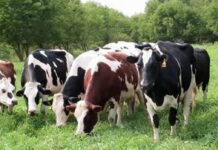Nyasha Kunyiswa
Government is turning to the private sector to improve Zimbabwe’s Agro-Processing Chain which has been decimated by a number of challenges include the COVID-19 pandemic.
The initiative seeks to integrate, align policies, strategies, programmes, projects, activities and efforts to support, promote the development, growth and competitiveness of the agro-processing sector.
The Agro-Processing Value Chain includes soya bean, fertilizer, cotton, sugar, dairy and the leather chain.
According to Industry and Commerce minister Sekai Nzenza, challenges such as coronavirus has disrupted traditional supply chains.
She was addressing an Agro-Processing Business Forum held in Harare.
Other problems affected the chain include foreign currency shortages and delays in disbursements.
“The country has a crushing capacity of 610,000mt per annum for soya bean production, sufficient for domestic demand for cooking oil.
“Inadequate soya bean throughput has resulted in over reliance on imported soya bean and other challenges in this sector include limited foreign currency to import soya bean.”
She said delays in accessing foreign currency and high cost of lines of credit and short term financing had also affected the sector.
“Government will give incentives for private sector to enter into contract farming arrangements with farmers to increase soya bean production,” she said.
She said her ministry was also working with the Central Bank to reduce cost of borrowing money and improving foreign currency availability.
Minister Nzenza said government had entered into a Five-Year Fertilizer Import Substitution Roadmap with local fertilizer manufacturers to boost productivity and production, save foreign currency, ensure food security and create employment.
“This takes advantage of the phosphate rock at Dorowa Minerals and existing local production capacity. Local fertilizer production also complements the agriculture recovery plan.
“Strategies under the fertilizer value chain include re-capitalization of fertilizer manufacturing companies, timely orders of fertilizer for government agricultural programmes and early disbursements of funds to manufactures,” she said adding that government was encouraging investment in new fertilizer manufacturing technologies while increasing uptake of locally manufactured fertilizers.
Minister Nzenza said Zimbabwe had adequate ginning capacity although the sector had been affected by several challenges.
The challenges include low productivity of cotton leading to inadequate cotton throughput, low quality of cotton, high cost of utilities and lack of state-of-the-art spinning and weaving equipment.
Government will adopt new strategies including new varieties of cotton seed to improve yields, encourage investment in state-of-the-art spinning and weaving equipment that can weave fabrics like poly cotton in line with fashion trends.
Zimbabwe will also strengthening anti-dumping measures to reduce the influx of second hand clothes.
In the dairy sector, the strategies to be implemented to improve performance include increasing the milk herd and funding by a Voluntary Levy on cheese and butter imports.
The Leather Value Chain face challenges including low productivity at farm level, irregular supply of good quality hides and skins, low level entrepreneurial and technical skills and obsolete technology.
Government has introduced the Leather Strategy this year.
“The objectives of the strategy are to increase capacity utilization of leather products, increase exports and enhance application ofsustainable production technologies,” Minister Nzenza said.









